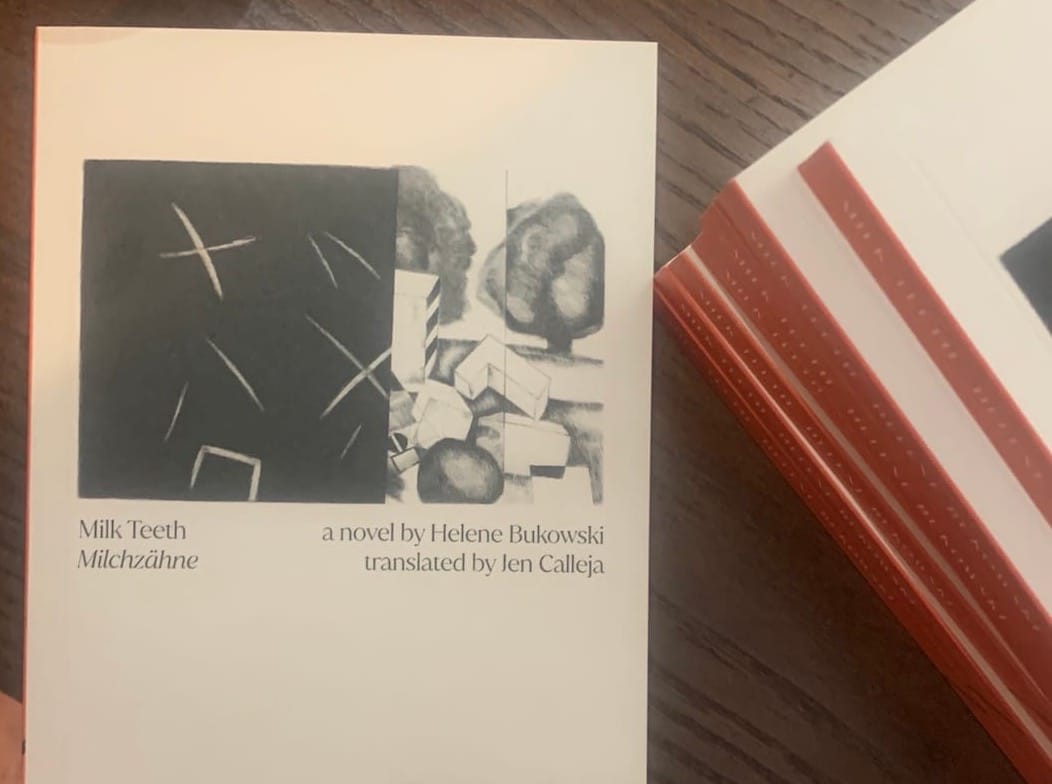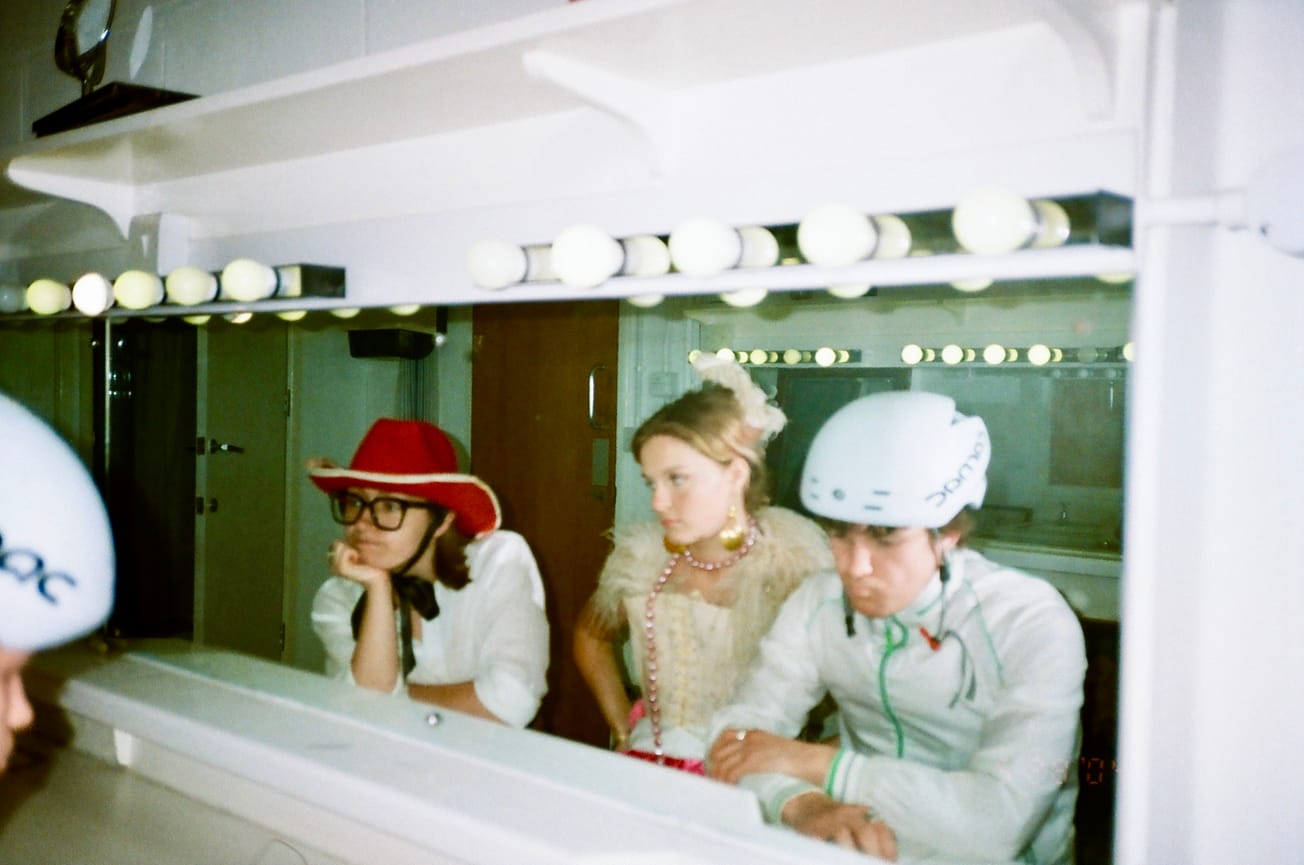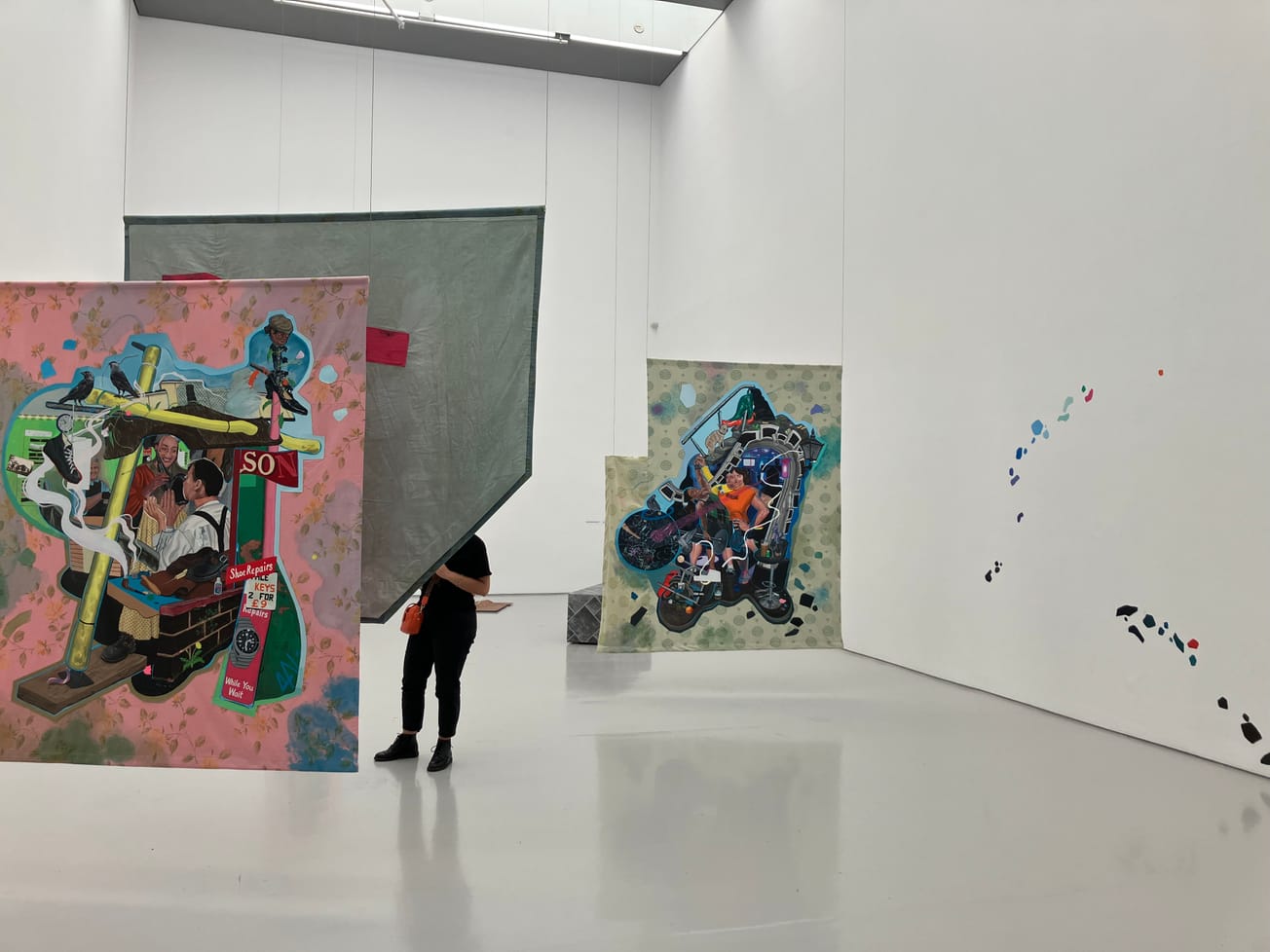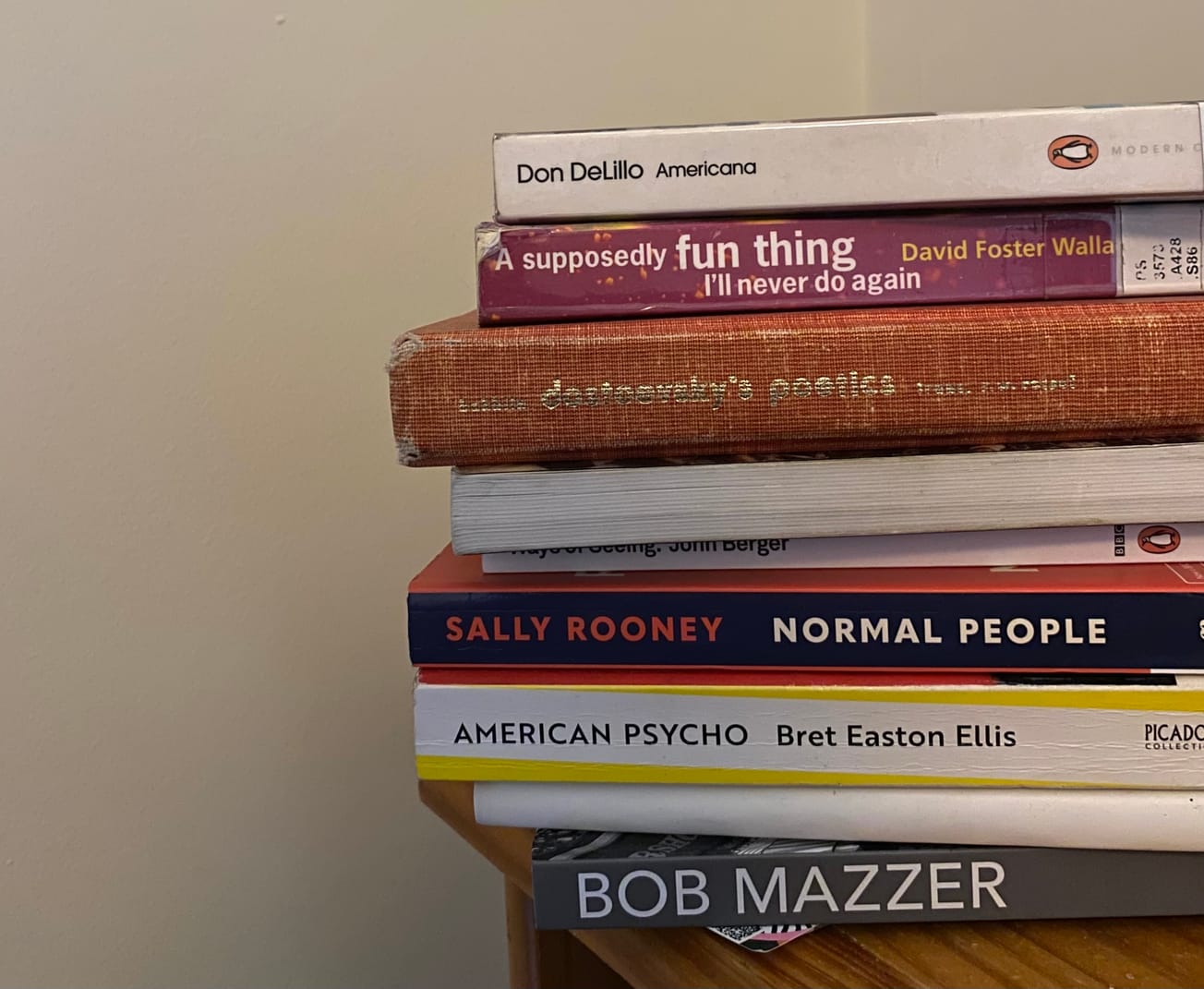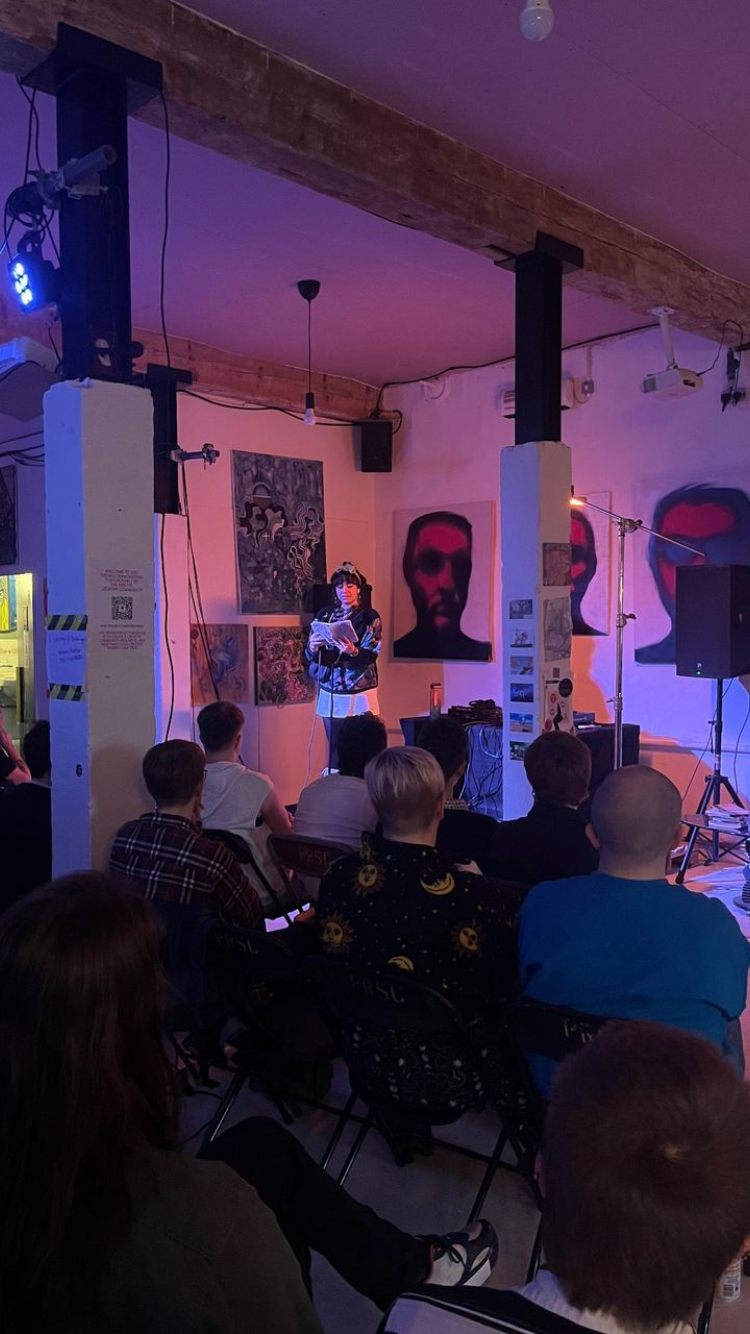By Grace Sandall, English Literature (MA)
The Good Book Shop, three minutes from St George’s Park, in a small, 3-by-3-metre space — with artfully arranged shelves, candles, and plants dotted — Helen Bukowski softly reads an extract from her 2016 novel Milk Teeth. The windows condense as she reads; it’s an especially bitter November night and especially warm inside.
Narrating a specific extract in German first allows us to focus on the sound of language, the feeling beneath the words, something simmering throughout. Bukowksi’s Berlin upbringing and the specific and joyous recount of her writing retreat alongside an old woman in the German countryside comes to mind. The woman’s dead husband was a poet, and she as well as her landscape were no doubt formative figures in the psychological imagination of the novel. Her house would be where the novel was completed back in 2019.
‘The landscape sank into me’, Bukowski recounts. For us now, I imagine the softly-spoken German does something similar. Milk Teeth is something of a dark fairytale, an ecological warning sign: imagine a tree that blooms all year. An oppressive summer brought about the idea, something increasingly commonplace, and no less uncanny — un-homely — for more and more of us each year. The environment of the novel, like ours, is on the verge. It is a house full of secrets, and little pieces of paper — poems, that the protagonist, Skalde, hides around the house. Edith, her mother, is a sort of y2k vision in twenty years’ time, all fur coat and slip dresses. It is dystopian for perhaps because, as Bukowski muses, ‘the lights are on’ but we are viewing it from a different angle. Thus, the themes of environmental demise and familial trauma hit home — or almost home.
The specific passage which she narrates is one from the beginning of the novel and one of the scenes which gives its inspiration to the new abstract cover of Milk Teeth (pictured). Resin, sticky on fingers, and a black-and-white modernist piece that speaks to the postmodern, or post-postmodern vision of the not-too-distant future.
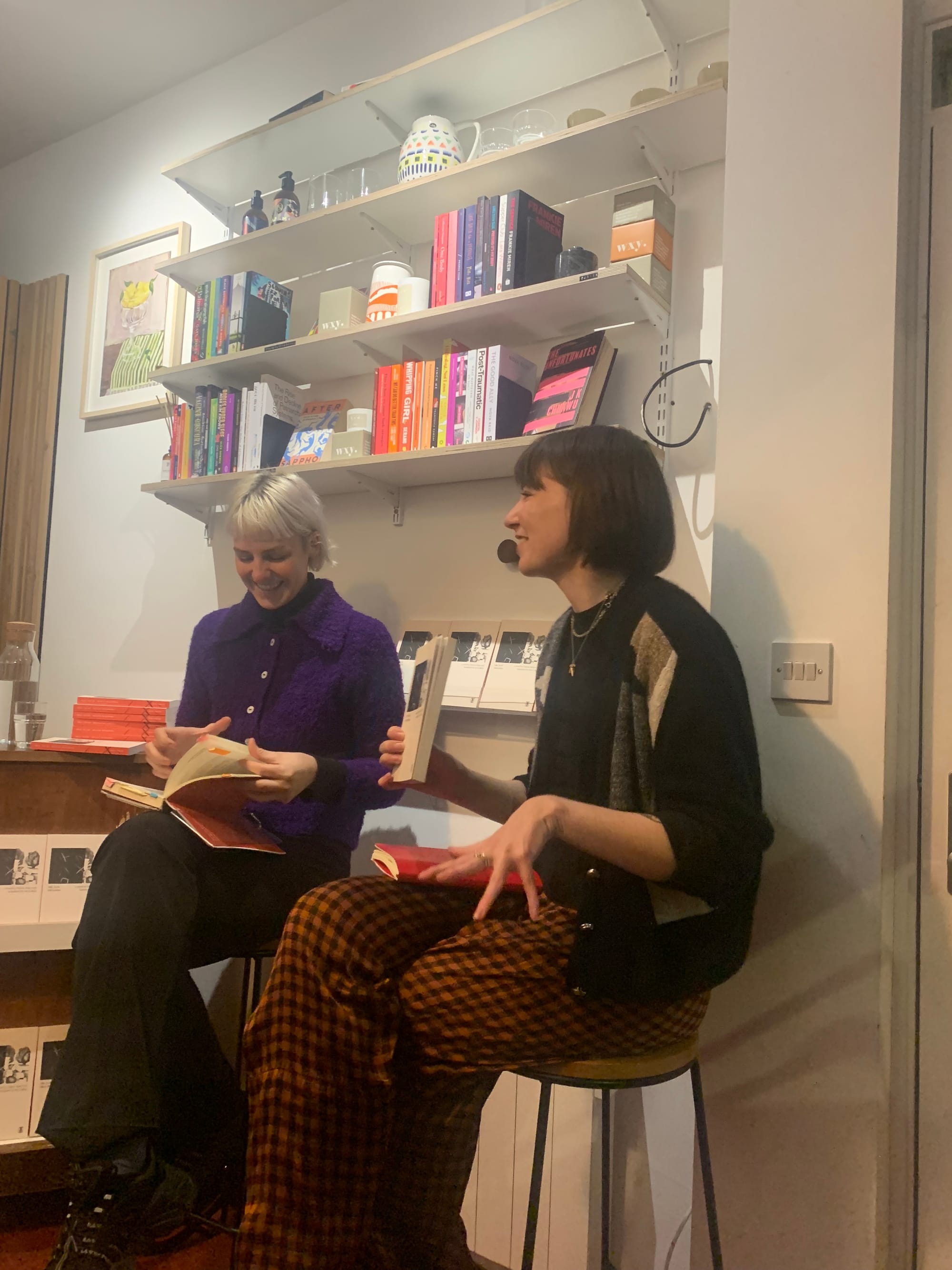
MTO press has just released this novel and has Bukowski’s second novel in the works for reprinting, courtesy of the same translator, Jen Calleja. These publishers work exclusively with women and non-binary authors, with 50% of all profits being donated to specific causes at the authors’ wishes. The literature at MTO is exclusively translated texts, and hearing Bukowski speak her native language first reminds us of the company’s ethos of representation and the breaking of barriers that literary culture must strive towards. It is about the ability to take up space, a room of one’s own, both this room, the cosy, intimate setting, and the wider cultural imagination.
Milk teeth — those semi-precious things we grow and lose. They speak to the novel’s probing into youth, with characters on the threshold of new territories, hostile worlds and things left unsaid. There are layers, like that of translation, that the cover art — the resin, the traces of past lives — and this novel and the people involved in this edition are proud to reveal. Bukowski seems a flowering writer on this specific threshold too. She is happily secretive about a third book in the works and is welcoming the film adaptation of Milk Teeth that is due to come out next autumn. This is something to keep an eye out for, and her literature is something to let inside.
Featured Image: Grace Sandall
Have you read any of Helen Bukowski's other novels?

